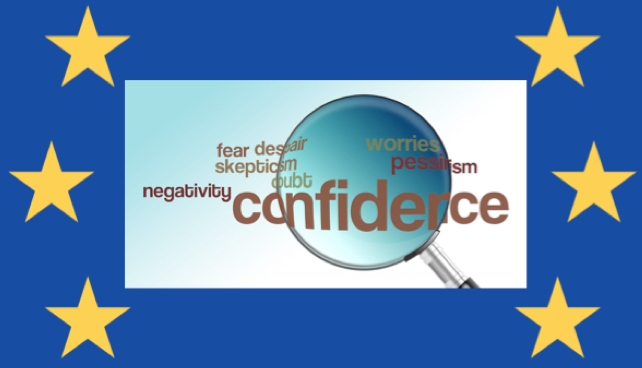|
Promoted by the Centre of Studies on Europe (TO-EU) of the Department of Culture, Politics and Society (University of Turin)
The issue of fear and its connections with politics is not new within scientific studies and it has been analysed and discussed in many scholarly works from different perspectives. In this sense, we can mention Delumeau’s (1978, 1984), Shklar’s, Berchtold’s and Porret’s (1994) published writings, without forgetting – for example – recent works written by Robin (2004), Bucheron and Robin (2015) and Wodak (2015). It is clear that recently, interest in the issue of fear has developed, chiefly in Europe, while also characterizing current public and political debate. More and more media reproduce and spread images of collective fears. Such fears end up by nurturing reflection and debates about European values, European borders and the European community’s ability to tackle with globalization challenges. We often tend to discuss about Europe as if it were at war not only with the “outside world” but also with its own “inside world”. Looking at the latter, we can observe how ancient fears have re-emerged with a new force and vitality (i.e. fear of poverty, anxiety for new diseases – i.e. Ebola and AIDS – the fear of “others”, economic insecurity, the fear of an apocalyptic end of humanity), whereas the new ones (terrorism, religious integralism, global warming and its effects on the earth, the impact of “technological progress” on public health: pollution, GMO’s, wifi, nuclear energy, nanotechnology, the ambivalence of sexual genders) seem to strengthen a sense of general insecurity, about the future of humanity and the actual ability to develop a liveable kind of society. Many recent works have emphasized these aspects not only in literature (Houllebecq, Submission 2015), but also in economics, politics and journalism (Fuerstenberg 2007, Tremonti 2009, Garton and Ash and Franceschini 2013). The upcoming Conference is going to develop a common reflection on the notions of “counter-discourses” and “polemic” which were discussed by the network of L'Observatoire des discourses sur l'Europe (http://disceurope.hypotheses.org), respectively in Besancon (2013) and Brussels (2015). Moreover our interdisciplinary Conference aims at broadening the sharing of studies on discursive works and involve a growing number of scientific disciplines: political communication, economics, modern and contemporary history, history of ideas, journalism, philosophy, political science, socio-linguistics and sociology. The interdisciplinary Conference wants to identify those mechanisms which produce fear as collective phenomenon (Lefebvre 1932, Delumeau1978) and study the lexicon of European fears in order to understand how fears have changed, while also paying attention to the elements of continuity between ancient and new fears. Another important aspect related to the Conference is the investigation of how the way of representing fears has changed over the years. In particular we will analyse: a) the existence of specific fears related to European history and the political, religious and social factors which have played a crucial role in the shaping of contemporary Europe; b) the identification of discursive and factual turning points which have influenced and changed the discourses, images and lexicon of fear from the eighteenth-century to the present day; c) how fear is produced and the enunciative strategies employed to spread it; d) how ancient fears (fear of death, fear of diseases, fear of social insecurity, fear of foreigners) have been renewed and strengthened within the context of globalization. In order to respond to these capital questions, we will analyse specific case studies related to Europe from eighteenth century to the present day. Discourse analysis – i.e. “Critical Discourse Studies” (van Dijk 2013: 1) – will be preferred as a way of creating and encouraging interdisciplinary dialogue. Bibliographical references: Berchtold, Jacques, Porret, Michel (éds.) (1994). La peur au XVIIIème siècle. Genève: Droz. Breton, Philippe (2000). La Parole manipulée. Paris: La Découverte. Bucheron, Patrick, Robin, Corey (2015), Les exercices de la peur. Usages politique d’une émotion. Lyon : PUL. Delumeau, Jean (1978). La peur en Occident (XIVe-XVIIe siècles). Une cité assiégée. Paris : Fayard. – (1984). Le péché et la peur. La culpabilisation en Occident (XIIIe-XVIIIe siècles). Paris : Fayard. Duez, Denis (2008) “L’Europe et les clandestins : la peur de l’autre comme facteur d’intégration ?”. Politiques européennes, n°26, pp. 97-119. Fürstenberg, Nina Zu (2007), Chi ha paura di Tariq Ramadan? L’Europa di fronte al riformismo islamico. Venise : Marsilio. Geremek, Bronislaw, Picht, Robert (éds.) (2007). Visions d’Europe. Paris: Odile Jacob. Garton Ash, Timothy, Franceschini, Enrico (2013). Perché diventare europei fa paura ai cittadini dell’Europa? La Repubblica delle idee. Guilhaumou, Jacques (2006). Discours et événement. L’histoire langagière des concepts. Besançon : PUFC. Micheli, Raphaël (2010). L’émotion argumentée. L’abolition de la peine de mort dans le débat parlementaire français. Paris : Le Cerf. Plantin, Christian (2011). Les bonnes raisons des émotions. Principes et méthode pour l’étude du discours émotionné. Berne : Peter Lang. Rinn, Michael (éd.) (2008). Émotions et discours. L’usage des passions dans la langue. Rennes: Presses universitaires de Rennes. Robin, Corey (2004). Fear. The History of a Political Idea. Oxford : Oxford University Press. Shklar, Judith N. (1989). The Liberalism of Fear. Cambridge / London : Harvard University Press. Tremonti, Giulio (2009). La paura e la speranza. Europa, la crisi globale che si avvicina e la via per superarla. Milan : Mondadori. van Dijk, Teun A. (2013). News as Discourse. London: Routledge. Wodak, Ruth (2015). The Politics of Fear. What right-wing populist discourses mean. London : Sage. |



